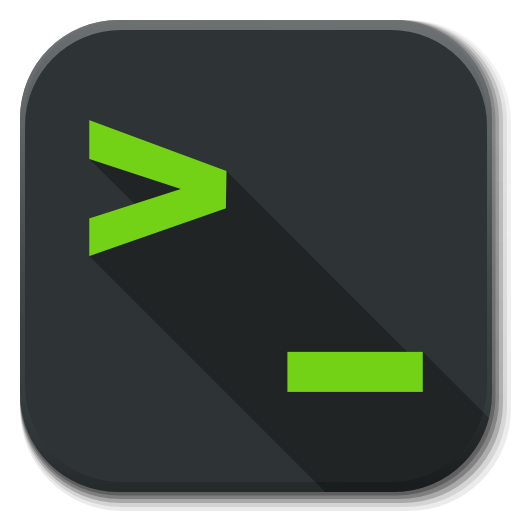This is kind of the anti-distro hopping thread. How long have you stayed on a single Linux distribution for your main PC? What about servers?
I’ve been on Debian on and off since 2021, but finally committed to the platform since April of this year.
Before that I was on OpenBSD from 2011 - 2021 for my desktop.
Prior to that, FreeBSD for many years, followed by a few years of distro-hopping various Linux distros (Slackware, Arch, Fedora, simplyMEPIS, and ZenWalk from memory).
How long have you been on your distribution? Do we have anybody here who has been on their current distro for more than a decade?
My main desktop has been upgraded continuously from RHL5 (no E) in ~1999 to Fedora 38 today.
Well, almost continuously. I’ve done at least one fresh install, when I switched from 32-bit to 64-bit hardware.
Edit: I have used a lot of other distros on other boxes, both physical and virtual - I’ve just stuck with Fedora on that one.
Been using Ubuntu, or more recently, Kubuntu since 2006. Not sure that counts as a distro change. Can’t say enough good things about KDE these days though.
3 years on EndeavourOS and no end in sight
I switched from Manjaro to EndeavourOS more or less a year ago and I’m not leaving any time soon.
What are the selling points on endeavour over Manjaro? Or endeavourOS over arch?
I’ve been on Manjaro a hot minute, and if I were to switch, I think I’d just go to arch. But I don’t personally know anything about EndeavourOS
OpenSUSE Tumbleweed. It’s surprisingly stable for a rolling release distro.
Yes, I was a distro hopper up until I tried Tumbleweed for the first time. Been using it for two years now, hopped around for a year prior.
Couldn’t agree more. Probably because they have some automatic QA going on on their CI and if some package does something wrong that this QA catches the package does not get included into update until it passes. Also if there would be something that would go wrong you still have automatic BTRFS snapshots created before and after and update and a boot entry automatically added to GRUB so you could simply reboot into old working state in such an unfortunate case.
I’ve been on Ubuntu ever since I switched to Linux 7 months ago, tbh I don’t understand distro-hopping. I’m not any tech wizard, and Ubuntu fulfills all my criteria: worked out of the box, worked faster than Windows, hasn’t broken yet 👍
All I do is run Firefox and Steam on my laptop anyways :/
Been disto-hopping a lot before ending up in openSUSE Tumbleweed (with KDE Plasma desktop). Now using it for about 6 years as my main desktop/laptop distro.
I’ve been on Fedora Linux for almost a year now. Considering that I started using Linux when the pandemic started, you can figure out that it’s my distro of choice now. Also, I like that Fedora is, for the most part, quite developer friendly and had great packages and software installed when I first started using it.
MX and Opensuse
I distro hopped a lot since installing a retail red hat box bought at the store in 199something.
It’s now more than 10 years that I basically only run Debian (on all my servers) and Gentoo/funtoo (on my workstations). For my partner and relatives, I install only Mint because it lacks all the cool gadgets, but it’s stable as a rock, especially on notebooks, and still reminds them of Windows.
I tried Arch, btw. Nice wiki, horrible package management.
I tried Pop_OS, it’s fun, it’s fine, it’s fresh, but tends to self-destruct if I push it too much.
I loved Elementary OS, it’s really promising but always gave me the feeling to run a beta OS.
Ahhh, when did Windows 10 come out? I’ve been on mint since then, though I’ve tried live discs/drives of the major distros here and there. I like mint, it works for me.
About two years, running Manjaro KDE. Runners up are Linux Mint, every major flavor of Ubuntu, and I briefly tried elementary OS. Manjaro has been my favorite for a while now!
Been on Manjaro for about 4 years for my gaming PC but been running a Debian flavor for servers since Woody.
Right, it’s since woody for me as well. I’ve periodically interacted with Redhat for particular work tasks, but for my installations it’s been Debian stable for servers + machines that are vital for me, and sid for personal or development machines, for over 20 years. This whole question is a little strange to me. Do people really replace their OS of choice more often than a few times per lifetime (when they discover something better than they knew about before)?
Workstation: Ubuntu approximately 18 years. (2004)
Servers: Debian approximately 25 years. (1998)
Wow, probably the winner. 25 years is really cool, such a long time for one distro.
In 1998 I tried Red Hat 5.2, but then switched to Slackware, and ended up on FreeBSD since it was like a better Slackware. I must have been all of 12-13 years old.
I admit I never even tried Debian until Lenny, and then went back to OpenBSD.
I was on Debian from around 1996ish to 2019.
Been on Pop OS since then.
Debian (testing) at least since 2018 and I don’t plan to switch. Before that I was hopping a bit between ubuntu based distros and manjaro. On servers I always use debian stable.












